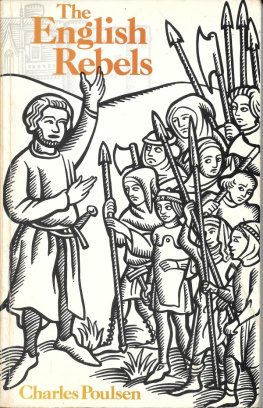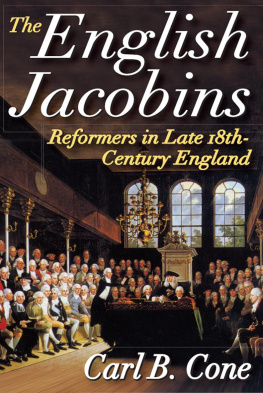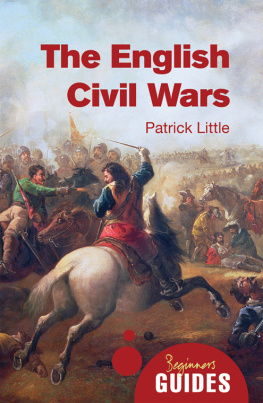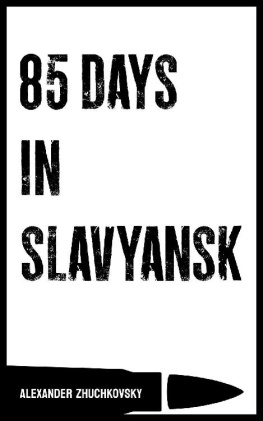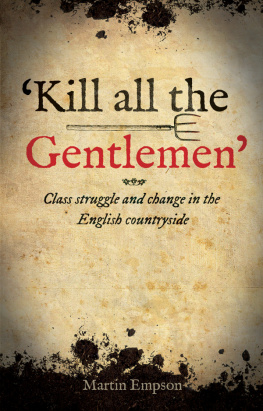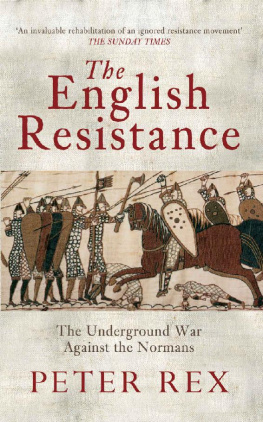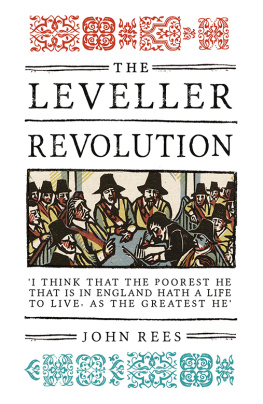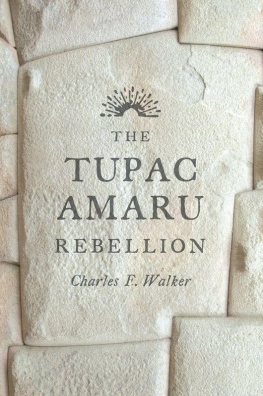The English Rebels
Charles Poulsen
 When Adam delved and Eve span
When Adam delved and Eve span,
Who was then the gentleman?To
CHARLES HOBDAY
scholar, poet, socialist and friend
Table of Contents
Acknowledgements
The publisher and author would like to thank the following for their kind permission to reproduce copyright illustrations: (4) The British Library; (1, 2, 8, 20) The Trustees of the British Museum; (14) Museum of London; (25) The National Maritime Museum, London; (24) National Portrait Gallery; (13,17 right, 19) Guildhall Library, City of London; (5, 6) The Dean & Chapter of Westminster; (3) The Parochial Church Council, Parish of St Gregory with St Peter, Suffolk; (16) British Tourist Authority; (15) Mary Evans Picture Library; (18, 21, 22, 23) Mansell Collection; (17 left, 23, 26) BBC Hulton Picture Library; (35, 36) The Illustrated London News Picture Library; (37) reproduced by gracious permission of Her Majesty the Queen.
We would also like to thank B. T. Batsford Ltd for allowing us to reproduce illustrations 9, 10 and 11 from Life in Tudor England by Peter Lane; Lawrence & Wishart Ltd for 27 and 28 from Captain Swing by Eric Hobsbawm and George Rude; Andre Deutsch Ltd for 30, 31 and 32 from The Tolpuddle Martyrs by Joyce Marlow; Reg Groves for 12 from The Rebels Oak; Socialist Review for 38; and Robert Leeson for 29.
Preface
Arising out of the 600th anniversary of 1381, this book is being published to commemorate those popular radical movements that carried its spirit and ideals into later centuries.
To many historians the Peasants Revolt was an unnecessary and unsuccessful rising, the work of illiterate and violent men led by an unworldly idealist and a shrewd organiser; it accomplished nothing but the deaths of many simple men and the murder of some outstanding statesmen. So indeed it is usually taught in our schools, when it is discussed at all, as a kind of unusual aberration in the long series of constitutional, legal reforms that marked Englands gradual progress from a feudal, agricultural nation of gentry, priests and peasants to our modern industrial, democratic welfare state.
To those on the left of the labour movement, however, the socialists, communists, trade unionists and others, it is seen as the first great mass movement of the English people, as a heroic and revolutionary episode in which thousands of ordinary people left their families, homes and farms to join a hazardous undertaking which, if successful, would result in the creation of a new and better life for all, based on social justice and personal freedom. And before it was crushed it gave Europe the first socialist analysis of society and the first socialist policy arising out of it; as expounded by Father John Ball when he preached to the rebel serfs at the Mass celebrated at Blackheath on Corpus Christi Day, 1381.
To tell the story of that rebellion against feudalism, to salute its martyrs across the centuries that divide us, and to trace in outline the radical theme in our history, is the purpose of this book.
CHAPTER I
The Peasants Revolt of 1381
1. THE MEDIEVAL BACKGROUND
In order to understand the Peasants Revolt and the risings that followed it, the hopes that activated it and the powers that crushed it, it is necessary for the modern reader to realise that it happened in a society vastly different from our own industrial democracy. It happened in the same England, but much of the landscape would be unrecognisable to twentieth-century eyes. The people involved in it had an idea of themselves, and of their relationship with each other and with the government, very different from that of today. Thus we must first visualise the land and the society in which these events took place.
They occurred when England was still in the Middle Ages, under the feudal system, but when that period was beginning to draw towards its close and the stable, age-old relationships within the social order were beginning to break down.
Let us look at medieval England: an offshore island north-west of Europe, beyond which lay the unending, uncrossed Atlantic. Ultima Thule, the Romans had called it, the last place. As the main centres of commerce and civilisation were situated around the Mediterranean, especially at its eastern end, England was a land of the outer perimeter, and developed later and slower than places more favourably placed on the trade routes. (It was the discovery of America and the Cape route to India that reversed this situation.)
Much of the country was covered by dense forest, through which ran the roads built by the Romans a thousand years before, but now much decayed. Later roads were little more than rough tracks. The rivers were unregulated and often overflowed. Bridges were few, and crossing was usually by ford or ferry. The low-lying valleys were damp and marshy. The fens of East Anglia were mostly under water, with the high places standing out like islands. In large clearings in the forests, at suitable places in the valleys, on the dry points in the fens, lay the villages in which most of the people lived and worked. At favourable spots round the coast, at river crossings and road junctions, stood the towns; most of them no bigger than a modern village.
The population of the whole country was probably less than 2,500,000. London, the greatest city, contained some 50,000 inhabitants, and the next largest, York, little over 4,000.
The people of this country were born into a society whose entire structure was based on the ownership and exploitation of the land. It was a nation organised into three distinct classes: the nobility and gentry, the Church and the commons. Squeezed in between the Church and the commons, but part of the latter, were the free citizens of the chartered towns.
The nation was conceived as a kind of broad-based pyramid, with the bottom layer consisting of the commons. The vast majority of them worked and lived on the land. At the topmost peak was the king, the chief of the nobility. He was in theory the ruler of the land, the source of law, the defender of the country. Reserving a large number of estates or manors for his own needs, he let out the remainder in great estates or fiefs to his principal barons. In return, the nobleman had to provide the king with a certain number of soldiers and knights for a stated period, and perform other services. To do this, he kept sections of his fiefs to provide his own income and let off the rest to lesser barons, who in turn had to supply him with armed men and follow him to war. This process was repeated until the lowest section, the knights, held their much smaller fiefs.
Many of these knights sublet further, leasing out parts of their land for a rent in money or in service or in kind to a member of the gentry. He would be a man born free, of good family, allied in status and ideas to the nobility. Later, as we shall see, some wealthier members of the commons also became small landlords, or, as they were called, lords of the manors.
This social system was summed up in the medieval catchword: No land without a lord: no man without a master.
The nobility was an exclusive class; titles were usually inherited. They had their own rigid etiquette and ceremonial and they justified themselves by providing the necessary military caste. Warfare was the base for all their culture, sport and outlook. They viewed with contempt all other social classes. This was the uppermost of the three strata of the population.
Between the nobility and the commons was the second layer, the Church, playing an important part in the life of the nation. It was the literate, educated section, which handled much of the business of running the country. When everybody believed in God, that He had created and administered the world, and that mortal life was merely a preparation for eternal bliss or punishment, and that damnation was the result of neglecting the rites of the Church, that organisation had an enormous influence on mens lives and thinking. And the Church had grown wealthy and powerful on donations, bequests, tithes, and other forms of contribution, voluntary or otherwise. It provided a large part of what we would call the civil service. It held the monopoly of education. It was the recognised dispenser of charity to the crippled, the sick and the indigent.
Next page
